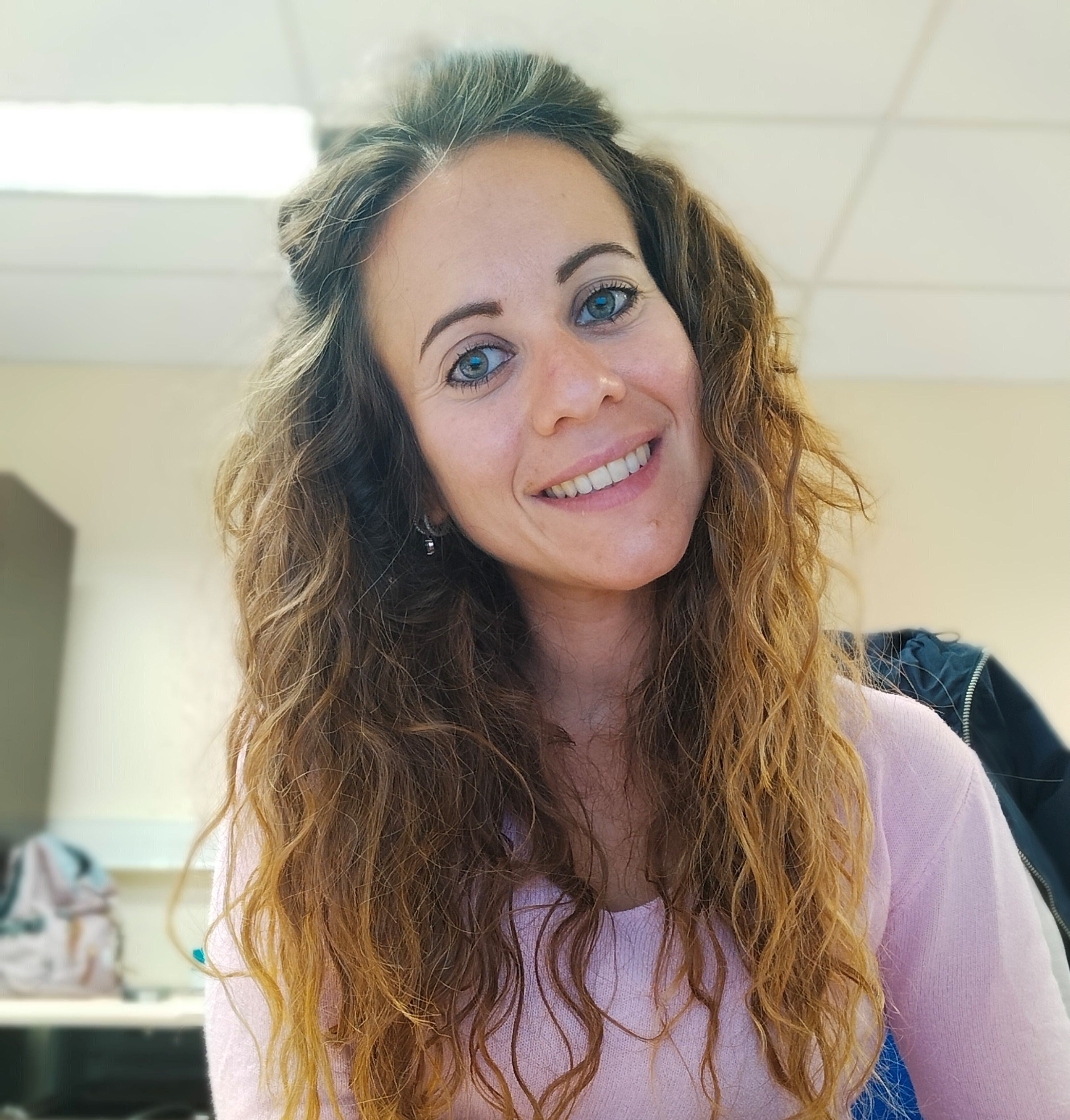Domestic Speakers Webinar Series
November 11, 2021
Ilaria Andreana

Department of Drug Science and Technology, University of Torino
POLYMERIC NANOCARRIERS FOR THE DELIVERY OF A NOVEL ANTI-INFLAMMATORY DRUG TO TREAT MUSCULAR DISEASES
Abstract
Among muscular myopathies, Duchenne muscular dystrophy is the most common form of muscular dystrophy characterized by fibrosis due to the presence of macrophages with altered inflammatory profile. Several compounds have been studied to reach a therapeutic effect to reduce chronic inflammation and fibrosis, but pharmacokinetics and pharmacodynamics problems could occur.
Recently, AMP-protein kinase (AMPK) results as an attractive therapeutic target due to its activity on the negative regulation of transforming growth factor (TGF-β) production. In this context, a new benzimidazole derivative molecule, namely 991, has been selected as a potential AMPK activator able to induce an anti-inflammatory effect. Encapsulation of 991 in biodegradable and biocompatible PLGA and PLGA-PEG nanoparticles (NPs) has been exploited as a strategy to overcome the drawbacks related to its administration. In order to obtain 991-loaded polymeric NPs, microfluidic approach has been performed. Critical variables of the process were systematically investigated to study their impact on NPs physico-chemical characteristics, encapsulation efficiency and storage stability. Furthermore, in vitro cytotoxicity and cellular uptake were evaluated in fibrotic bone marrow derived macrophages (BMDM), the more characteristic cells in degenerative myopathies. Microfluidic technique led to monodispersed NPs that resulted not toxic for BMDM and characterized by a fast uptake after 2-h incubation.

About Ilaria
Ilaria Andreana obtained her M.S. Degree in Pharmaceutical Chemistry and Technology from the University of Turin in 2016, presenting an experimental project about the efficacy of phosphorous dendrimers for siRNA delivery in pulmonary diseases. This work was carried out during a six-month stage in the laboratory of Prof. Fattal at the Institut Galien Paris-Sud. Ilaria is currently a PhD student co-tutored by the University of Turin and the University Claude Bernard Lyon 1. Her research focuses on the design and formulation of innovative nanosystems for the treatment of muscular myopathies, exploiting different preparation techniques. She started her PhD in Turin under the supervision of Prof. Barbara Stella, studying actively targeting agents to functionalize polymeric nanoparticles to improve muscular tropism. During her PhD program, she spent 14 months at the Université Claude Bernard Lyon 1 in the Laboratoire d’Automatique, de Génie des Procédés et de Génie Pharmaceutique (LAGEPP). Here, she developed a collaboration with the Institut NeuroMyoGène for the encapsulation of novel drug involved in the treatment of Duchenne muscular dystrophy. The main goal of her research is to obtain targeted biodegradable and biocompatible nanocarriers capable of efficiently encapsulate small molecules to treat muscular diseases.
Ilaria Arduino

Department of Pharmacy, Pharmaceutical Sciences, University of Bari "Aldo Moro"
SOLID LIPID NANOPARTICLES: FROM CONVENTIONAL PRODUCTION TO MICROFLUIDIC TECHNIQUE
Abstract
Solid lipid nanoparticles (SLNs) has been exploited as colloidal drug delivery system, such as lipid emulsions, liposomes and polymeric nanoparticles. They have many advantages, compared to traditional drug delivery systems, they could prove to be an efficient delivery and targeting system for drugs and biologically active molecule. Despite their great potential, translation from the preclinical formulation to the industrial scale-up might have same limitations. In recent years, microfluidic nanoparticle production strategies have been developed with the goal of providing a successful approach to scale-up the nanoparticle synthesis process in a reliable and reproducible manner. Recently, we have developed the first set-up to produce SLNs by microfluidics. SLNs have been produced using the glass-capillary microfluidic device, through a systematic optimisation process, opening a new avenue for future standardisation and scale-up of the production of such nanosystems. The achievement of a continuous and reproducible microfluidic method to produce SLNs, prompted us to develop iRGD peptide functionalized SLNs as a targeted drug delivery system using the same technique. Here, the great potential of SLNs as an innovative drug or biologically active molecule delivery system will be highlighted, describing the steps from their production by conventional methods to the microfluidic technique

About Ilaria
Ilaria Arduino received the degree in Pharmacy at the University of Bari “Aldo Moro” in 2015. In 2016 she carried out a year of research as a research fellow at the Department of Pharmacy- Pharmaceutica Sciences, University of Bari with a project concerning the analytical characterization of inclusion complexes with cyclodextrin. In 2017 she started PhD at the University of Bari, and she developed her research activity under the supervision of Prof Nunzio Denora. In the framework of the Ph.D. program, her research is mainly focused on nanomedicine and microfluidics technique. She is mostly interested in innovative drug delivery systems and in the development of devices useful in the pharmaceutical field such as microfluidic chips. Ilaria has achieved the title of PhD in May of 2020 with a doctoral thesis entitled “Design of solid lipid nanoparticles for anticancer drugs brain delivery”. Currently, she is a post Doc at the University of Bari, and her field of research concerns the microfluidic technologies for the production and manipulation of biomimetic membranous nano-assemblies.
Michele Schlich

Italian Institute of Technology, University of Cagliari
LIPID NANOPARTICLES LOADED WITH 11 TUMOR-SUPPRESSIVE miRNAs FOT THE LOCAL THERAPY OF GLIOBLASTOMA
Abstract
Micro RNAs (miRNAs) are post-transcriptional modulators of the gene expression. Most often, different miRNAs act in synergism to regulate a biological pathway. By elucidating the complex cooperative network of miRNAs in pathogenic processes, it is possible to design combinations of synthetic miRNA mimics or antagonists as therapeutic agents. However, the use of bare nucleic acids is limited by their unfavorable bio-pharmaceutical properties, such as poor cell uptake and fast enzymatic degradation. Here, we developed a nanomedicine strategy based on lipid nanoparticles (LNPs) to enable the co-delivery of 11 synthetic miRNAs to human glioblastoma multiforme (GBM) in vitro and in orthotopic xenotransplant mouse models of GBM.
The endogenous 11 miRNA were found to be down-regulated in patient-derived GBMs and in U87 cells, compared to the total brain. Re-administration of the miRNA mimics significantly reduced the invasion of GBM cells in transwell assays and their infiltration in 3D collagen matrix. LNPs were produced by microfluidic mixing, and showed a multilamellar structure and efficient loading. When delivered by LNPs, all the 11 miRNAs were successfully taken up by GBM cells to levels comparable with a commercial transfection reagent. The treatment of GBM-bearing mice with LNPs loaded with the miRNA pool slowed the tumor growth and increased the survival by 50% compared to the untreated control.

About Michele
Michele Schlich is affiliated researcher at the Nanotechnology for Precision Medicine laboratory at Istituto Italiano di Tecnologia, and post doc at the University of Cagliari. His research is focused on the design, production and characterization of nanocarriers for small molecules and nucleic acid delivery. He is currently working on the formulation of lipid-based nanoparticles for oligonucleotides and proteins delivery, exploring their application for the treatment of brain cancer and for vaccination, respectively.
Dr Schlich obtained his PhD in Life, Environmental and Drug Sciences at the University of Cagliari in April 2017. During his PhD, he worked on the development of liposome and cyclodextrin-based nanocarriers encapsulating siRNA against neurodegeneration and brain cancer. His research interests also involve the formulation of nanosuspensions to increase the dermal and transdermal bioavailability of poorly soluble drugs, as well as the combination of nanomedicines with medical devices (eg. needle-free jet injectors, microneedle rollers) to improve safety and efficacy. As a part of his training, dr Schlich has been a visiting researcher at the School of Pharmacy of the University College Cork (2015-2016), working on non-viral vectors for siRNA delivery and their biological testing, and a visiting student at the Department of Organic Chemistry of the Semmelweis University, Budapest (2011-2012).